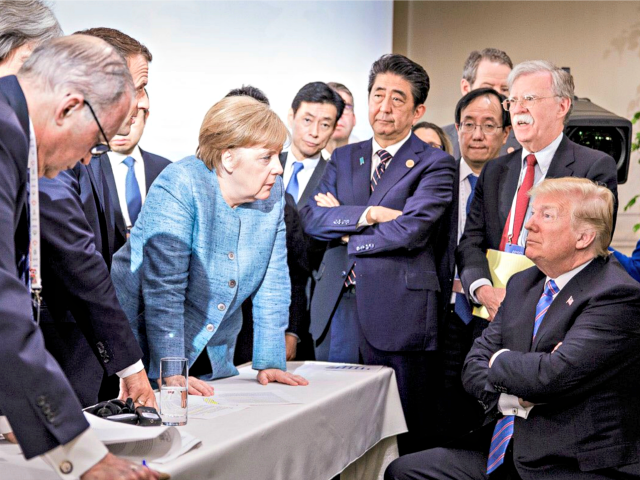Foreign interference helped swing votes to Democrats in the midterm elections, say economists who studied the impact of retaliatory tariffs on the United States.
Thomas Fetzer and Carlo Schwarz of the University of Warwick looked at the voting patterns in places that were targeted by retaliatory tariffs imposed by Canada, China, Mexico, and the European Union. They found that Republican candidates in counties most exposed to retaliation fared worse by between 1.4 to 2.7 percentage points.
The retaliatory tariffs particularly hurt President Donald Trump’s approval ratings among Democrats, the economists found. Among Republicans, however, the negative effect was much smaller and not statistically significant.
This was not accidental. The study finds that the retaliatory tariffs were “strongly and distinctly targeted towards areas that supported Trump in the 2016 election.” More startlingly, the tariffs were calibrated not just to sting Trump supporting areas but were specifically aimed at areas that swung to Trump in the 2016 presidential election.
The economists go so far as to describe a secret algorithm used to target swing Trump counties:
It appears that the targeting is sharp and distinctly designed to hit areas that saw disproportionate changes in support for Donald Trump as Republican candidate in the Presidential elections 2016, but not to areas that swung to Republican candidates in the House or Senate elections that also took place in 2016. This suggests a high degree of calibration of the retaliation response, which, in the case of the European Union is designed using a secret algorithm, which has been described as the ‘weapon of war’ in this dispute.
Fetzer and Schwartz explained that “our findings suggest that, similar to sanctions, retaliatory tariffs can be used to affect political outcomes.”
By their estimate, at least $15 billion of U.S. exports were affected by the retaliation measures between July and December 2018.
The economists are not Trump supporters. In their paper, they take a critical tone when discussing the Trump administration’s tariffs and characterize the retaliation as an inevitable response to U.S. provocation.
“Our results indicate that nativist policies themselves, by triggering retaliation of trading partners, may itself have non-negligible adverse economic effects and may trigger a political backlash, by virtue of the retaliation being highly targeted,” they write.
To Fetzer and Schwartz, the lesson is that “retaliatory measures can harm the electoral outcomes of politicians. Therefore, policymakers would need to consider the impact of likely retaliatory measures before making a decision on trade policy.”
That, however, assumes that politicians should make policy not according to what is in the national interest but in their own political interest.

COMMENTS
Please let us know if you're having issues with commenting.